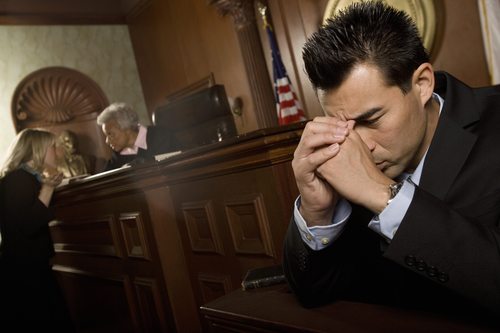How to Defend Yourself In A Domestic Violence Matter
 You have found yourself in the position of defending against a final restraining order being entered against you. A trial has been scheduled and you are naturally concerned. What is important to prioritize in making a strong defense?
You have found yourself in the position of defending against a final restraining order being entered against you. A trial has been scheduled and you are naturally concerned. What is important to prioritize in making a strong defense?
Relevance: Your accuser is not allowed to submit anything to the judge that is not relevant to the domestic violence proceedings. Of course, whether or not what the accuser is offering is seen as relevant is up to the judge. However, a skilled family law attorney should be ready to object to any evidence, including testimony by the accuser that they believe is not relevant to the case. This includes “heard from a friend of a friend” hearsay.
Hearsay: Again, whether or not testimony that the accuser is offering during the trial is hearsay is up to the court. But, in most circumstances the accuser is not allowed to tell the judge what someone else said to them, unless that person is in the courtroom and can be cross-examined by your attorney. Similarly, documents are most often considered hearsay if the person who wrote the document is not present to testify about what he or she wrote. An experienced family law attorney will know when to make an objection regarding hearsay and if the judge agrees, that evidence will not be allowed.
Improper Character Evidence: Your accuser is not allowed to tell the judge about negative things in your past if they have nothing to do with the final restraining order hearing. The law generally does not allow people’s histories to have an effect on a new case. Your attorney should be prepared to object if your accuser attempts to bring in past acts of yours that are not related to the domestic violence hearing.
Please note: the effects of having a final restraining order entered against you are significant. Some people might think, “I know that I am being falsely accused, but what does it really matter? All it means is that I can’t go near this person.” Beware that this outlook can get you in trouble. For example, you will be fingerprinted and photographed and placed into national domestic violence registry. You will not be permitted to own or possess any firearms. If you are in law enforcement, this could severely impact your employment. If applying for a job, the restraining order will appear in a background check, clearly impacting your chance at employment, especially if you work with children.
Having experienced counsel that practices regularly in family court is crucial to ensuring that your rights are protected. We encourage you to get help today. If you are in the process of defending against a restraining order, please contact us to schedule an attorney consultation.
Read More:
I have been falsely accused of domestic violence. How do I correct this? What are my rights? [FAQ video]
My Ex is Lying to Get Child Custody!



